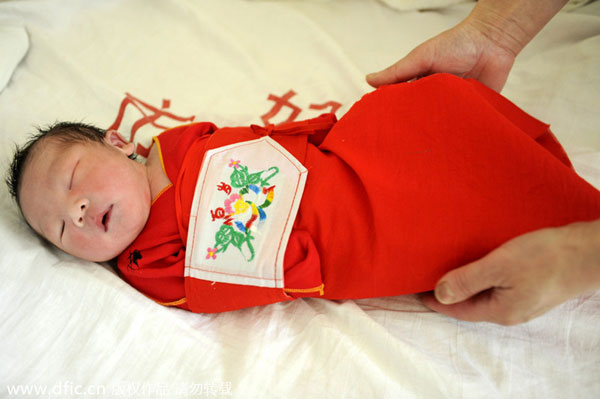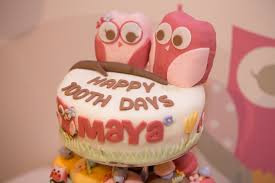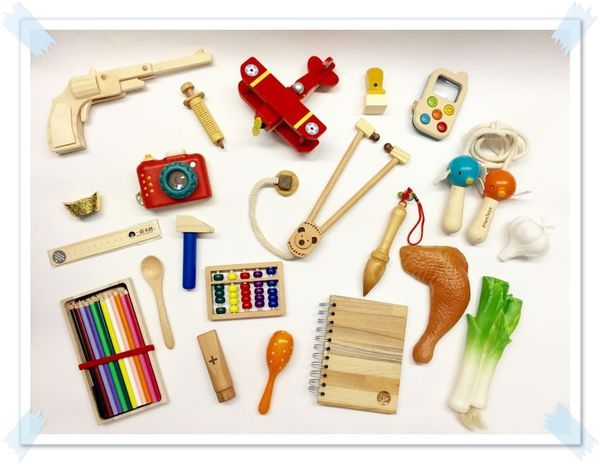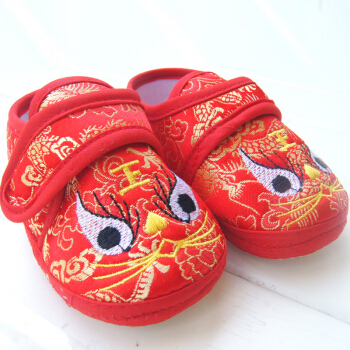Chinese Cultural Traditions Tied to Babies
In Chinese culture, there are two very important things, marriage and babies, without both of these your life is not considered complete. So it makes sense that pregnancy is taken very seriously in China, and traditions related to babies start with marriage. Many couples pin-up calendars with chubby-baby boys dressed in red above their bed in the hopes it will bring them luck and in the future they will have a baby boy. Here are some books about Chinese culture you can read to your kid.

Pre-conception
The next step is pre-conception, couples who are planning on getting pregnant will start traditional strict diets to increase their chances of having a healthy baby. Some grandparents might even push specific types of food that are thought to gift the couple with a baby boy. This highlights something that is very different about babies in the west and in China. In China, babies aren’t just the couple’s business but the whole family.
Grandparents will be heavily involved in child care and decisions, if you visit any park in China it’s rare to see parents with their kids, instead, it will be grandparents. However, recently the younger generation has taken an affront to this and many new couples are choosing to keep the baby business between themselves and away from the hands of overbearing grandparents who are just trying to be helpful.
The birth
Unfortunately, when it comes to the birth itself unless if you choose to go private the undertone of Chinese hospitals is that birth is woman business. So the fathers are banned from the ward during birth and even prenatal checks, because of this many mothers in-laws’ step in to provide this support. But this support goes past the birth. Postnatal care is traditionally provided by mother in laws, who enforce strict rules for Zuò yuè’zi, which you might know as sitting the month. But what is ‘sitting the month’?

Zuò yuè’zi: “Sitting the month”
Sitting the month is basically what the name implies, a month where the mother must rest. Its traditions include not being able to shower, the mother must not encounter cold drafts, cannot hold the baby for long periods of time, and strict feeding guides. Zuò yuè’zi traditions change from province to province but it means a month where the mum is waited on like a princess to let her recover. Many of these traditions came about as in the past many women would die from infections. This was related to limited access to clean water and linens and bad hygiene.
What started out as good intentions has now had some negative effects as modern science and doctors discourage some of these practices. Instead, many couples choose to have a modern sitting the month, either in their own home by having a specialized helper who can cook, clean and help the mother with childcare or in a private institution. Some private sitting the month facilities can be even more expensive than the birth itself! But they come with lots of bonuses, doctors, pediatricians, and lactation consultants are available 24/7 should you require their help. Healthy, mouthwatering food is provided so you don’t have to worry about meals. Classes such as yoga and even massages are offered to help slowly rehabilitate the mother. These facilities allow both parents to focus on their new child without external worries, consider it a mini post-birth holiday.

100-day celebration
In the past babies might not survive due to medical complications, but if a baby made it past the first three months of life it was seen as a good sign. Because of this in China, it’s not very common to visit newborns after they have been born, unless if you are the grandparents. Everyone else must wait until the important 100-day celebration to get to hold the bundle of joy. In China, babies don’t wait until their first birthday for their first party, instead, they have one on their 100th day of life. These parties are very extravagant and parents will be gifted red envelopes filled with money and baby gifts. This is different to the west where expecting mums will hold baby showers before the baby is born and provide guests with a list of items she would like. It’s also at this party that the babies name is revealed, this brings us to out next tradition.
Baby names
Picking a name is very important, we’ve touched upon this in previous articles. A baby’s name is supposed to set them up for life, and parents will pick characters based on qualities they want their child to portray. But this also depends on the family. Some families will have a generational baby name book that has been written out by their ancestors so they have no say in the name they simply follow what the book suggests. Other’s might follow the tradition that dictates the eldest man of the family gets to name the child. If all else fails, you have good old fortune tellers to rely on. Although these are expensive they will be able to use many parameters to find an auspicious name for your child.

The grabbing test
Although not the final tradition related to babies, it’s one that should be mentioned. On the babies first birthday, they are put through what is referred to as a ‘grabbing test’. Babies are provided with a variety of items, from books to money, etc and whatever item the baby picks is thought to be what they will chase after in life! You can find “grabbing test” kits on Taobao with different items. Tough test for such a little baby!

I could spend all day talking about traditions related to children since there are lots! But I thought I’d leave you with the most typical ones that are still followed today!
Copyright Notice: Everyone is welcome to forward the articles in this blog as long as the links to these articles are also included.

